#eco friendly industries
Explore tagged Tumblr posts
Text
Eco-Friendly Home Revolution: Your Complete Guide to Sustainable Living
Table of Content Introduction: The Urgency of Sustainable Living Reduce Carbon Footprint at Home Top Benefits of Using Green Home Solutions How to Embrace an Eco-Conscious Lifestyle Eco-Friendly Décor: Beauty with a Purpose Sustainable Kitchen Practices Green Transportation Options Water Conservation Strategies Eco-Friendly Gardening and Landscaping The Role of Technology in Sustainable…
#earth friendly products#eco friendly alternatives#eco friendly cleaning products#eco friendly design products#eco friendly industries#eco friendly online stores#eco friendly product#Eco friendly products examples#Eco friendly products for students#eco friendly products for the home#Eco friendly products ideas#Eco friendly products project#eco friendly shop#eco friendly things#eco friendly websites#eco green products#eco products#eco products store#eco shopping#eco-friendly accessories#eco-friendly alternative#eco-friendly home products#eco-friendly items#eco-friendly products#environmentally friendly cleaning products#environmentally friendly products#examples of eco friendly products#green home products#green living products#green products
0 notes
Text
There's something so fucking numbing about seeing just how low these companies that make millions and millions of dollars will stoop because they do not care about their artists or the fans they exploit or fucking anything except a line going up. Imagine being these artists and having to live with the reality that any day your voice and likeness could be ai generated by your own fucking employer and your fans would find any excuse to defend that because "well it's just a small thing we can't start boycotting now". I'm so fucking sick to my stomach.
Translators and subbers already get paid literally peanuts but hey if you can feed the videos into an AI subtitler who gives af right? Hire a graphic designer? Nah it's just a cover anyway even if anyone notices it's not a big deal. Put any fucking effort into Yeji's teaser? Why do that when we can ai generate elements of it to save money. Who fucking cares about people's skills if you can save like a few bucks here and there and anyway we've already conditioned stans to support these groups no matter what lol.
It's so fucking disgusting and so fucking disrespectful to itzy and skz and all the other artists in jyp and as always the worst fucking thing? No one cares lmao. JYP dgaf, majority midzys both kmidzys and imidzys dgaf, no one fucking cares.
#snowdd.txt#idk man#it's getting really hard for me to not just feel extremely apathetic towards everything that goes on in the industry#everything is so fucking bad all the time#and it feels like nothing is ever gonna change because no one fucking cares#jype having a whole eco friendly campaign while doing this#lol
2 notes
·
View notes
Text
CBD Press

Welcome to the CBD Press community, your trusted source for everything hemp! 🌿✨ Whether you're curious about the health benefits of hemp-derived CBD, eager to explore new products, or interested in the sustainable farming practices that make hemp a powerful resource, we’ve got you covered.
Dive into our content for insights on wellness, industry trends, and the fascinating history behind this versatile plant. Join us on this journey and unlock the full potential of hemp! 💚 #HempWellness #CBD #SustainableLiving #HempProducts
#Hemp CBD#CBD benefits#Hemp wellness#Sustainable hemp#Hemp products#Natural health#Plant based#CBD oil#Hemp industry#Eco friendly
2 notes
·
View notes
Text
Sustainable Fashion: A New Era for Style and Responsibility
Introduction
The fashion industry is one of the largest contributors to environmental degradation, accounting for significant water usage, greenhouse gas emissions, and waste generation. In response to these challenges, sustainable fashion has emerged as a solution to balance style with environmental and social responsibility. This movement seeks to reform how clothing is designed, produced, consumed, and discarded, making it a key player in the fight against climate change and resource depletion.
The Problem with Fast Fashion
Fast fashion, characterized by mass production of inexpensive and trendy clothing, has dominated the industry for decades. While it has made fashion accessible to millions, its environmental and social costs are staggering.
Resource Depletion: Producing textiles, particularly cotton and synthetic fibers, demands vast amounts of water and energy. For instance, making one cotton T-shirt can require up to 2,700 liters of water.
Carbon Emissions: The fashion industry accounts for approximately 10% of global carbon emissions, with synthetic fibers derived from fossil fuels being major contributors.
Waste Generation: Over 92 million tons of textile waste are generated annually, much of which ends up in landfills or incinerators.
Exploitation of Labor: Fast fashion often relies on low-cost labor in developing countries, where workers may face unsafe conditions and unfair wages.
What is Sustainable Fashion?
Sustainable fashion aims to mitigate these issues by adopting practices that respect the environment, uphold ethical labor standards, and encourage mindful consumption. It incorporates several principles:
Eco-Friendly Materials: Using organic, biodegradable, or recycled materials such as organic cotton, hemp, bamboo, and recycled polyester reduces reliance on virgin resources.
Ethical Production: Ensuring fair wages, safe working conditions, and labor rights for workers throughout the supply chain.
Waste Reduction: Prioritizing durability, repairability, and recyclability of garments to minimize waste.
Transparency: Providing consumers with information about sourcing, production processes, and environmental impact fosters accountability.
Innovations Driving Sustainable Fashion
The sustainable fashion movement is fueled by innovation and creativity, showcasing how technology and tradition can coexist to reduce environmental harm.
Textile Recycling Technologies: Advanced recycling methods can break down used textiles into their raw fibers, enabling the production of new fabrics without relying on virgin materials.
Alternative Fabrics: Lab-grown materials, such as mushroom leather (mycelium) and algae-based textiles, offer sustainable alternatives to traditional animal and synthetic products.
Digital Fashion: Virtual clothing, designed for social media or gaming, eliminates physical production, addressing issues of waste and resource use.
The Role of Brands
Brands play a crucial role in steering the fashion industry toward sustainability. Many companies are adopting innovative practices to reduce their environmental footprint:
Patagonia: Known for its environmental activism, Patagonia uses recycled materials and offers a repair program to extend the life of its products.
Stella McCartney: The brand prioritizes cruelty-free and eco-friendly materials, avoiding leather, fur, and PVC.
H&M Conscious Collection: A line featuring garments made from organic or recycled materials, showcasing the brand’s commitment to sustainable fashion.
However, the rise of “greenwashing” poses a challenge. Some companies market themselves as eco-friendly without making significant changes to their practices, making it essential for consumers to critically assess claims.
Consumer Role in Sustainable Fashion
Consumers hold significant power in driving the shift toward sustainability through their choices and behaviors:
Mindful Consumption: Opting for quality over quantity and avoiding impulse purchases can reduce demand for fast fashion.
Caring for Clothes: Properly washing, repairing, and storing garments extends their lifespan, reducing the need for new purchases.
Second-Hand Shopping: Buying pre-owned clothing from thrift stores or online platforms reduces waste and promotes circular fashion.
Supporting Ethical Brands: Choosing brands that prioritize sustainability and transparency encourages the industry to adopt better practices.
Challenges to Sustainable Fashion
Despite its promise, sustainable fashion faces several challenges:
Cost: Sustainable garments often come with a higher price tag due to ethical practices and eco-friendly materials, making them less accessible to some consumers.
Scale: Transitioning to sustainable practices on a global scale requires significant investment and collaboration across the supply chain.
Consumer Awareness: Many consumers remain unaware of the environmental impact of their clothing choices or the benefits of sustainable fashion.
The Future of Sustainable Fashion

The future of sustainable fashion lies in collaboration, innovation, and education. Governments, businesses, and consumers must work together to create a circular economy where waste is minimized, and resources are reused. Key developments include:
Legislation: Policies like the European Union’s “Green Deal” are pushing for stricter regulations on waste management and sustainable production in the fashion industry.
Education: Raising awareness about the environmental impact of fashion can empower consumers to make informed choices.
Technological Advancements: Continued innovation in materials science and recycling technologies will make sustainable fashion more accessible and cost-effective.
Conclusion
Sustainable fashion is more than a trend; it is a necessary evolution to address the pressing environmental and social challenges posed by the traditional fashion industry. By embracing eco-friendly materials, ethical practices, and mindful consumption, we can create a future where fashion reflects not just personal style but also a commitment to the planet and its people.
#“Best eco-friendly fashion brands for ethical clothing”#“Environmental impact of fast fashion and sustainable alternatives”#“How to make sustainable fashion choices”#“Tips for incorporating sustainable fashion into daily life”#Embracing Sustainable Fashion#Innovative sustainable materials in the fashion industry#What is Sustainable Fashion?
2 notes
·
View notes
Text

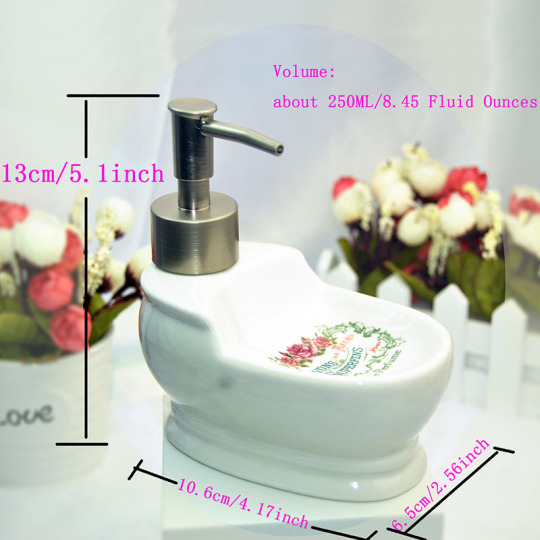



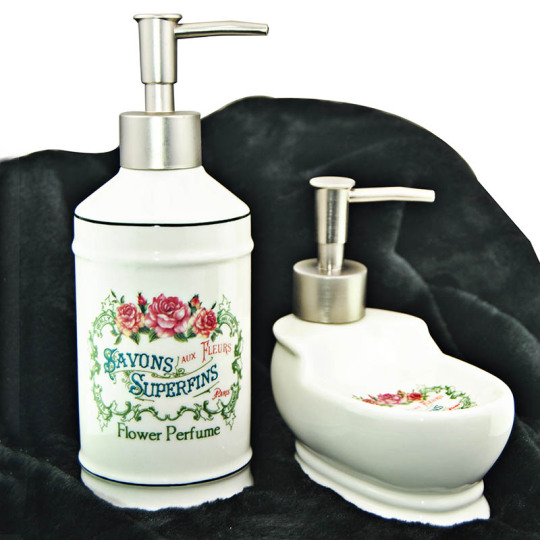
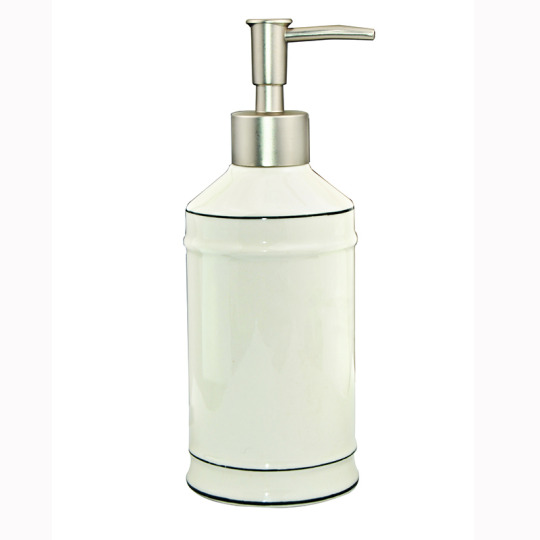
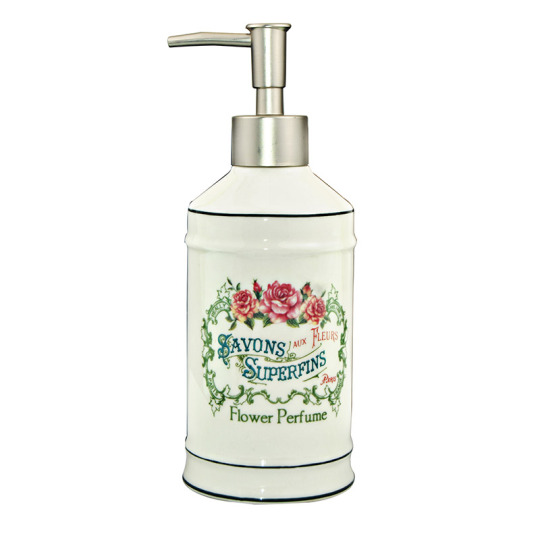
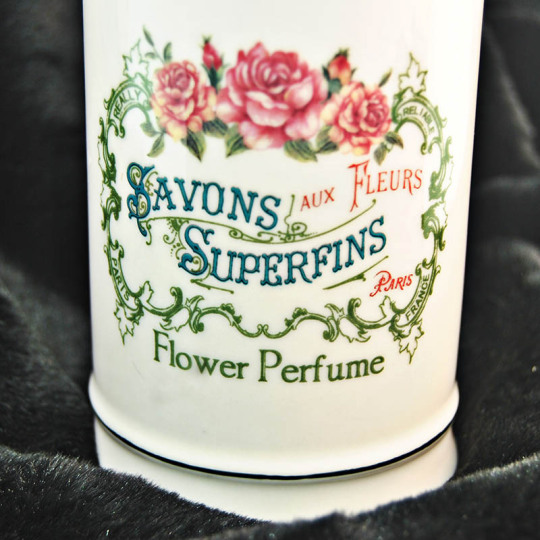

Ceramic Soap Dispenser Lotion Gel Liquid Pump Bottle Paris Rose Savons Aux Fleurs Superfins Flower For Kitchen Sink https://foreverceramic.com/product/ceramic-soap-dispenser-lotion-gel-liquid-pump-bottle-paris-rose-savons-aux-fleurs-superfins-flower-for-kitchen-sink/
#Soap dispenser#Liquid soap dispenser#Automatic soap dispenser#Wall-mounted soap dispenser#Commercial soap dispenser#Hand sanitizer dispenser#Manual soap dispenser#Bathroom soap dispenser#Kitchen soap dispenser#Countertop soap dispenser#Refillable soap dispenser#Modern soap dispenser#Industrial soap dispenser#Decorative soap dispenser#Eco-friendly soap dispenser#Ceramic soap dispenser#Handmade ceramic soap dispenser#Bathroom ceramic soap dispenser#White ceramic soap dispenser#Modern ceramic soap dispenser#Designer ceramic soap dispenser#Vintage ceramic soap dispenser#Artisan ceramic soap dispenser#Kitchen ceramic soap dispenser#Elegant ceramic soap dispenser#Ceramic pump soap dispenser#Rustic ceramic soap dispenser#Unique ceramic soap dispenser#Custom ceramic soap dispenser#Ceramic soap pump
5 notes
·
View notes
Text

Why Hygienix Hospitality is the Leading Supplier for Housekeeping Materials
In today’s fast-paced world, maintaining cleanliness and hygiene is a top priority for businesses across various sectors, especially in hospitality, healthcare, and corporate environments. For such establishments, having reliable and high-quality housekeeping materials is essential. One company that stands out in providing these critical supplies is Hygienix Hospitality.
With a strong reputation for delivering premium quality housekeeping products and excellent customer service, Hygienix Hospitality has become a leading supplier for housekeeping materials in India. This blog will explore the reasons why Hygienix Hospitality is the top choice for housekeeping supplies, how they meet industry needs, and what sets them apart from the competition.
#Hospitality Supplies#Hotel Amenities#Hygiene Products#Eco-Friendly Solutions#Guest Experience#Hospitality Industry#Personal Care Products#Sanitization Solutions#Hotel Management#Room Supplies#Health & Safety#Sustainable Practices#Cleaning Supplies#Guest Services#Professional Hygiene
2 notes
·
View notes
Text
2 notes
·
View notes
Photo

The Eco Sundial Clock is an excellent addition to the garden, or a perfect gift for outdoor enthusiasts.
19 notes
·
View notes
Text
Wine Woman Whisky Whisperer
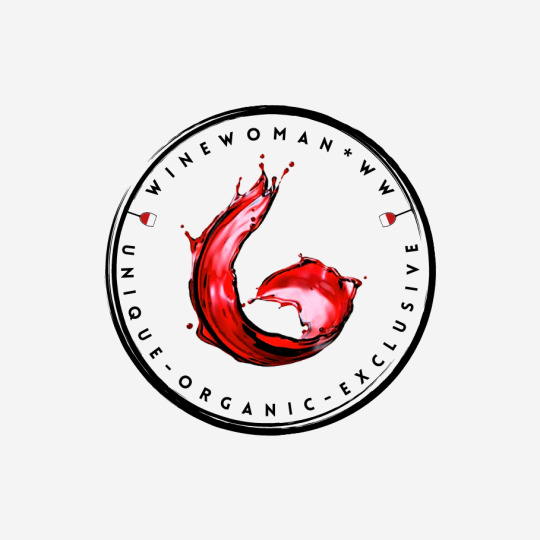
Website: https://www.winewomanww.com
Wine Woman Whisky Whisperer specializes in importing exclusive, organic European wines and Japanese whisky. With a focus on eco-friendly and sustainable practices, they offer a unique collection of wines and spirits, alongside private label wines for wholesale. Their services extend to private tastings, degustation events, and hospitality training, emphasizing their commitment to quality and environmental sustainability.
Facebook: https://www.facebook.com/Winewomanww
Instagram: https://www.instagram.com/winewomanwhiskywhisperer/
Keywords:
Japanese distilleries
Hospitality industry training
Wine tasting events
Degustation experience
Australian wine market
Biodynamic wines online
Sustainable wineries
Australian wine market trends
Biodynamic wines for sale
Eco-friendly spirits
European vineyards
Organic wine sales
Private label wine services
Sustainable winemaking practices
Wine event management
Wine event planning
eco friendly spirits
european wine importers
japanese whisky retailers
wholesale wine distribution
sustainable liquor practices
unique wine collection
quality spirits import
wine and whisky expertise
whisky tasting sessions
organic wine varieties
biodynamic wine options
sustainable spirit choices
eco conscious winemaking
imported european wines
authentic japanese whisky
custom label wine services
bulk wine distribution
engaging wine tastings
exquisite degustation experiences
training for hospitality professionals
sustainability in liquor production
rare and unique wine finds
premium spirits imports
wine and whisky connoisseurship
old world charm of european vineyards
japanese artistry in distilleries
wine event coordination
whisky tasting workshops
certified organic wine sales
environmentally friendly spirits
sustainable practices in winemaking
exclusive european wine imports
sought after japanese whiskies
custom branded wine options
wine distribution for businesses
interactive wine tastings
fine degustation experiences
professional training for hospitality
sustainability initiatives in liquor
collectible and unique wines
importing high quality spirits
expertise in wine and whisky
australian wine market insights
exploring european vineyard landscapes
japanese craftsmanship in distilling
whisky tasting masterclasses
organic wine sales online
biodynamic wine selections
eco friendly spirit choices
premier european wine imports
rare japanese whisky finds
private label wine customization
wholesale wine distribution services
exclusive wine tasting experiences
degustation events for enthusiasts
advanced hospitality industry training
liquor sustainability education
limited edition and unique wines
premium imported spirits
wine and whisky aficionado expertise
australian wine market developments
european vineyard terroir
japanese whisky distillation art
wine event coordination services
whisky tasting seminars
certified organic wine selections
biodynamic wines with character
eco conscious spirit offerings
sustainability in artisanal winemaking
european wine import insights
japanese whisky culture appreciation
custom label wine services for businesses
wine distribution partnerships
immersive wine tasting experiences
degustation events for connoisseurs
#Japanese distilleries#Hospitality industry training#Wine tasting events#Degustation experience#Australian wine market#Biodynamic wines online#Sustainable wineries#Australian wine market trends#Biodynamic wines for sale#Eco-friendly spirits#European vineyards#Organic wine sales#Private label wine services#Sustainable winemaking practices#Wine event management#Wine event planning#eco friendly spirits#european wine importers#japanese whisky retailers#wholesale wine distribution#sustainable liquor practices#unique wine collection#quality spirits import#wine and whisky expertise#whisky tasting sessions#organic wine varieties#biodynamic wine options#sustainable spirit choices#eco conscious winemaking#imported european wines
2 notes
·
View notes
Text
Basalt Fiber Reinforcement in Construction: A Sustainable Paradigm Shift
Introduction In the contemporary construction landscape, a notable shift towards sustainable and eco-friendly building materials is underway. Among the alternatives gaining prominence is basalt fiber reinforcement, positioning itself as a compelling substitute for traditional steel reinforcement. This transition is fueled by a collective desire to reduce environmental impact and elevate the…
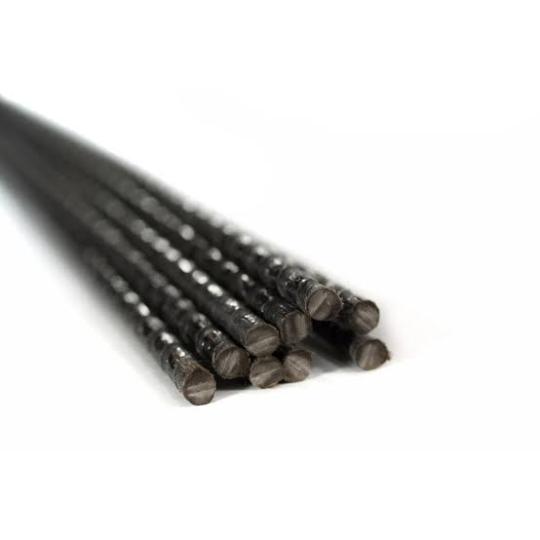
View On WordPress
#alternative to steel reinforcement#basalt fiber applications#basalt fiber properties#Basalt fiber reinforcement#basalt mesh in concrete#BFRP composites#construction industry sustainability#corrosion-resistant materials#durability in construction#eco-friendly building#environmental impact of construction#future of construction materials.#green building practices#lightweight construction materials#seismic resilience in buildings#steel replacement in construction#strength-to-weight ratio#Sustainable Construction Materials#sustainable structural design#thermal insulation in construction
2 notes
·
View notes
Text
The Rise of Natural Cleaning Products: A Comprehensive Review
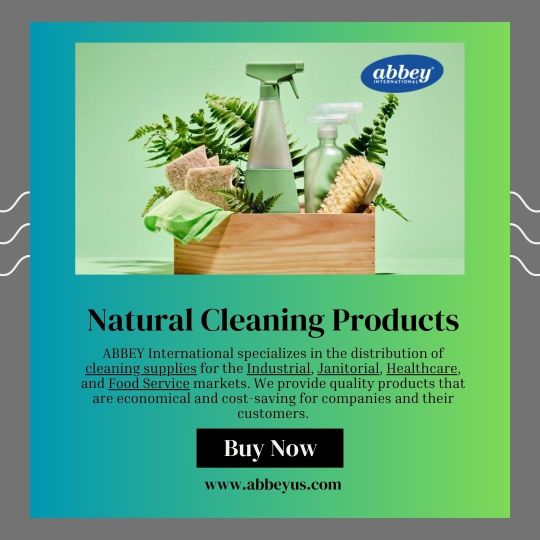
When it comes to maintaining a clean and healthy living environment, the choice of cleaning products is crucial. In recent years, there has been a significant rise in the popularity of natural cleaning products supplies. These products offer a safer and more environmentally friendly alternative to traditional chemical-based cleaners. In this comprehensive review, we will delve into the world of natural cleaning products and explore their benefits, effectiveness, and how they are shaping the future of cleaning. So, let's dive in!
1. What are Natural Cleaning Products?
Natural cleaning products are cleaning solutions that are formulated using ingredients derived from natural sources such as plants, minerals, and essential oils. These products are free from harsh chemicals, toxins, and artificial fragrances that are commonly found in conventional cleaners. Instead, they harness the power of nature to provide effective and safe cleaning solutions for your home.
2. The Benefits of Natural Cleaning Products
Safer for You and the Environment: Natural cleaning products are free from toxic chemicals that can pose health risks to you, your family, and the environment. By using these products, you can reduce your exposure to harmful substances and contribute to a healthier planet.
Gentle yet Effective: Despite their gentle nature, natural cleaning products are highly effective at removing dirt, grime, and stains. They can tackle tough cleaning tasks without compromising on cleanliness and hygiene.
Allergen-Friendly: Many conventional cleaning products contain allergens and irritants that can trigger allergies or respiratory issues. Natural cleaning products, on the other hand, are often hypoallergenic and safer for individuals with sensitivities.
Eco-Friendly Packaging: In addition to their eco-friendly formulations, natural cleaning products often come in sustainable packaging. From recyclable bottles to biodegradable refill options, these products take a holistic approach to reduce waste.
3. Common Ingredients in Natural Cleaning Products
Natural cleaning products harness the power of various natural ingredients to provide effective cleaning. Here are some common ingredients you can find in these products:
Citric Acid: Derived from citrus fruits, citric acid is a natural cleaning agent that helps remove stains and dissolve mineral deposits.
Baking Soda: Known for its versatile cleaning properties, baking soda acts as a gentle abrasive and deodorizer, making it ideal for various cleaning tasks.
Essential Oils: Essential oils not only add a pleasant fragrance to natural cleaning products but also offer antimicrobial and antifungal properties. Popular choices include lavender, tea tree, and lemon oils.
Vinegar: A staple in natural cleaning, vinegar is effective at cutting through grease, disinfecting surfaces, and removing odors.
4. How to Use Natural Cleaning Products Effectively
To maximize the effectiveness of natural cleaning products, here are some tips to keep in mind:
Read and Follow Instructions: Always read the instructions provided by the manufacturer to ensure proper usage and dilution ratios.
Spot Test: Before using a new natural cleaning product on a surface, perform a spot test in an inconspicuous area to check for any adverse reactions.
Proper Ventilation: When using natural cleaning products, ensure proper ventilation by opening windows or using fans. This helps prevent the buildup of fumes.
Combine for Power: Sometimes, combining natural ingredients such as vinegar and baking soda can create powerful cleaning solutions for specific tasks.
5. Top Natural Cleaning Products Brands
When it comes to natural cleaning products, several brands have gained recognition for their commitment to sustainability and effectiveness. Here are some notable brands to explore:
Eco-Max: Known for its plant-based formulas and eco-friendly packaging, Eco-Max offers a wide range of natural cleaning products suitable for various cleaning needs.
Method: Method is a popular brand that focuses on stylish packaging and biodegradable formulations. Their products are both effective and aesthetically pleasing.
Seventh Generation: Seventh Generation is dedicated to creating cleaning products that are safe for the environment and people. They offer a wide range of natural cleaning solutions for every part of your home.
6. Natural Cleaning Products vs. Conventional Cleaners
The use of natural cleaning products presents a stark contrast to conventional cleaners. Here's how they differ:
Chemical-Free vs. Chemical-Laden: Natural cleaning products are free from harsh chemicals like ammonia, chlorine, and phthalates, which are commonly found in conventional cleaners.
Environmentally Friendly vs. Environmental Impact: Natural cleaning products are designed to minimize their environmental impact, from their ingredients to their packaging. Conventional cleaners, on the other hand, often contain ingredients that can harm aquatic life and contribute to pollution.
Health-Conscious vs. Health Risks: Natural cleaning products prioritize your health by avoiding harmful chemicals that can cause respiratory issues, allergies, or skin irritations. Conventional cleaners may pose health risks with prolonged exposure.
7. Making the Switch: Tips for Transitioning to Natural Cleaning Products
If you're considering making the switch to natural cleaning products, here are some helpful tips:
Gradual Transition: Start by replacing one or two conventional cleaning products with their natural counterparts. Gradually expand your collection as you become more comfortable with the switch.
Research and Reviews: Before purchasing natural cleaning products, do some research and read reviews to ensure their effectiveness and suitability for your cleaning needs.
DIY Options: Consider creating your own natural cleaning solutions using simple ingredients like vinegar, baking soda, and essential oils. DIY cleaners can be cost-effective and customizable.
8. The Environmental Impact of Natural Cleaning Products
The rising popularity of natural cleaning products has a positive impact on the environment in several ways:
Reduced Chemical Pollution: By opting for natural cleaning products, you contribute to reducing the release of harmful chemicals into the environment, minimizing water and air pollution.
Sustainable Ingredient Sourcing: Many natural cleaning product manufacturers prioritize sustainable ingredient sourcing, which helps protect natural resources and ecosystems.
Biodegradable Formulations: Natural cleaning products often utilize biodegradable formulations that break down more easily in the environment, reducing waste and landfill accumulation.
9. DIY Natural Cleaning Recipes
Creating your own natural cleaning products can be a rewarding and cost-effective approach. Here are a few simple DIY recipes to get you started:
All-Purpose Cleaner: Mix equal parts vinegar and water in a spray bottle, and add a few drops of your favorite essential oil for a pleasant scent.
Window and Glass Cleaner: Combine one part water, one part rubbing alcohol, and a tablespoon of vinegar in a spray bottle. Shake well before use.
Scrubbing Paste: Mix baking soda with a small amount of water to create a paste. Apply it to surfaces that require extra scrubbing power, like sinks or tile grout.
10. The Future of Natural Cleaning Products
As more individuals become conscious of their environmental impact and seek healthier alternatives, the future of natural cleaning products looks promising. The industry continues to innovate, developing new formulations, packaging solutions, and sustainable practices. With increasing accessibility and consumer demand, natural cleaning products are set to become the go-to choice for conscientious cleaners worldwide.
Conclusion
The rise of natural cleaning products supplies has revolutionized the way we approach cleanliness and sustainability. These products offer effective cleaning solutions while minimizing the impact on our health and the environment. By harnessing the power of natural ingredients, natural cleaning products provide a safe and eco-friendly alternative to conventional cleaners. So, take a step towards a cleaner and greener home by incorporating natural cleaning products into your routine today!
For More Details Visit Us….
Natural cleaning products Texas
#industrial cleaning supplies#natural cleaning products#commercial cleaning#cleaning products supplies#house cleaning products#eco friendly cleaning products
3 notes
·
View notes
Text
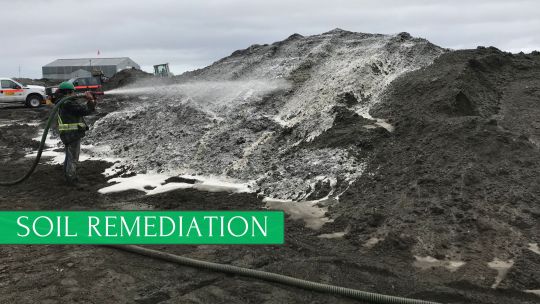
Unearthing the Power of Soil Remediation: A Promising Path towards Environmental Sustainability
The health of our planet is intricately linked to the quality of its soil, an aspect that is often overlooked. Soil pollution presents a significant environmental concern, affecting agricultural productivity, water quality, and ultimately, human health. However, the innovative field of soil remediation holds the key to reclaiming contaminated land and fostering a sustainable future.
Soil remediation, a sector of environmental science, focuses on purifying and revitalizing the soil. It encompasses various techniques to remove harmful pollutants, such as heavy metals, petroleum products, pesticides, and more, from contaminated soil. The ultimate aim is to restore the soil to a state where it can once again support healthy growth and biodiversity.
There are several methods of soil remediation, each tailored to the type and extent of soil contamination.
1. Excavation and Disposal
As a direct approach, this method involves physically removing the contaminated soil and disposing of it in designated landfills. Although it's an immediate solution, it merely transfers the contamination issue from one place to another, leading to concerns about its environmental sustainability.
2. Soil Washing
This technique uses water, sometimes mixed with other substances, to wash away contaminants. It's particularly effective for treating soils contaminated with heavy metals or certain kinds of organic pollutants. However, the process requires treatment of the resulting washwater to avoid secondary contamination.
3. Bioremediation
One of the most promising soil remediation strategies, bioremediation, employs natural processes to clean up contaminated soil. Specific microorganisms or plants (phytoremediation) are used to absorb, break down, or immobilize contaminants. This method is eco-friendly and holds great potential for large-scale applications.
4. Thermal Desorption
Thermal desorption involves heating soil to evaporate the pollutants, which are then collected and treated separately. This process is ideal for soils contaminated with volatile organic compounds, but it requires substantial energy input.
Soil remediation's significance extends far beyond environmental preservation. Healthy soil is critical for a functioning ecosystem, contributing to plant growth, water filtration, and climate regulation. Moreover, with the escalating global population, the need for arable land is at an all-time high. Through soil remediation, previously unusable land can be restored, strengthening food security and promoting sustainable land use.
Simultaneously, soil remediation helps protect groundwater resources. Soil acts as a natural filter, and contaminants present in the soil can leach into groundwater over time, posing serious health risks. By removing these pollutants, soil remediation safeguards our water supply.
In the grand scheme of climate change, soil remediation plays a pivotal role. Soil holds three times as much carbon as the atmosphere. Techniques like bioremediation not only remove contaminants but also improve soil health, increasing its capacity to store carbon and thereby helping to mitigate climate change.
In conclusion, soil remediation is not merely a sector of environmental science; it is a tool of hope for our planet. It embodies the mantra of "heal the soil, heal the planet," and underscores our responsibility to protect the environment. With continued research and technological advancements in soil remediation techniques, we can make strides towards a sustainable future.
Let's invest in soil remediation - for our health, for our food, and for our planet.
#Soil Remediation Techniques#Methods of Soil Remediation#Importance of Soil Remediation#Biological Soil Remediation#Chemical Soil Remediation#Thermal Soil Remediation#Soil Contamination Solutions#Future of Soil Remediation#Nanoremediation for Soil#Prevention of Soil Pollution#Soil Degradation and Remediation#Phytoremediation Techniques#Environmental Restoration Techniques#Soil Clean-up Methods#Soil Sustainability Practices#Eco-friendly Soil Remediation#Industrial Waste Soil Remediation#Soil Remediation Technologies#Innovations in Soil Remediation#Impact of Soil Remediation
2 notes
·
View notes
Text




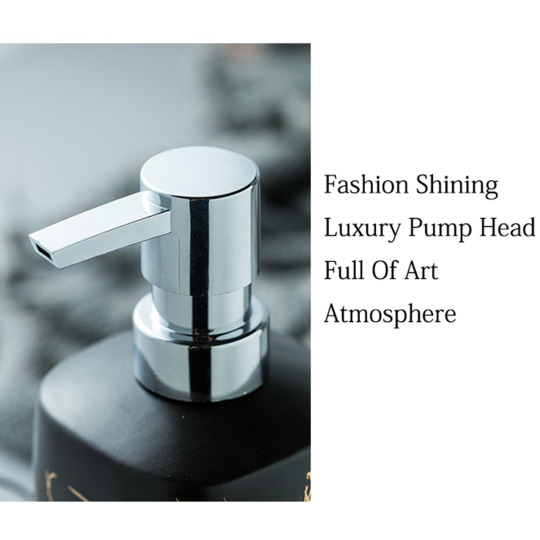


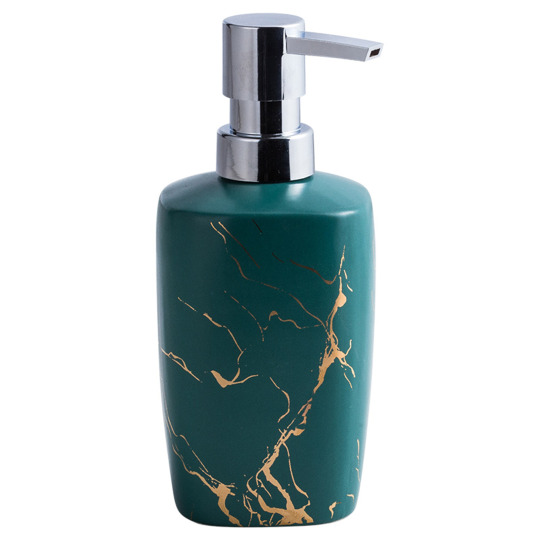

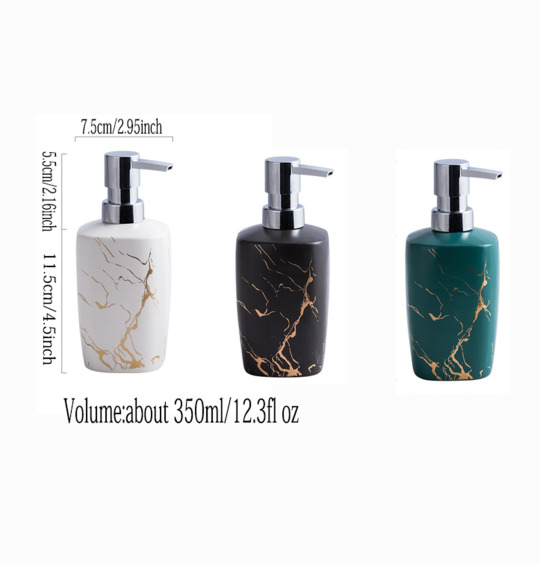
Ceramic Luxury Thunder Shower Hand Soap Dispenser Lotion For Kitchen Hotel Bathroom Filling Bottle
https://foreverceramic.com/product/ceramic-luxury-golden-thunder-shower-hand-soap-dispenser-lotion-for-kitchen-hotel-bathroom-filling-bottle/
#Soap dispenser#Liquid soap dispenser#Automatic soap dispenser#Wall-mounted soap dispenser#Commercial soap dispenser#Hand sanitizer dispenser#Manual soap dispenser#Bathroom soap dispenser#Kitchen soap dispenser#Countertop soap dispenser#Refillable soap dispenser#Modern soap dispenser#Industrial soap dispenser#Decorative soap dispenser#Eco-friendly soap dispenser#Ceramic soap dispenser#Handmade ceramic soap dispenser#Bathroom ceramic soap dispenser#White ceramic soap dispenser#Modern ceramic soap dispenser#Designer ceramic soap dispenser#Vintage ceramic soap dispenser#Artisan ceramic soap dispenser#Kitchen ceramic soap dispenser#Elegant ceramic soap dispenser#Ceramic pump soap dispenser#Rustic ceramic soap dispenser#Unique ceramic soap dispenser#Custom ceramic soap dispenser#Ceramic soap pump
3 notes
·
View notes
Text
The Rise of Sustainability and Eco-Friendly Practices in the Pharmaceutical Industry
Sustainability is no longer just a buzzword—it’s becoming a core value in industries around the world. Continue reading The Rise of Sustainability and Eco-Friendly Practices in the Pharmaceutical Industry
#eco-friendly practices#Pharmaceutical Industry#renewable energy#sustainability#Sustainable Packaging
0 notes
Text
Finding the Right Corrugated Boxes Manufacturer for Your Needs
In today's globalized marketplace, effective packaging is paramount. Whether you are a small business in Mumbai or a large exporter shipping to the USA, the right corrugated boxes ensure your products arrive safely and professionally. Choosing the ideal Corrugated Boxes Manufacturer is a critical decision. It impacts your product integrity, shipping costs, and brand image. This comprehensive guide will navigate the key factors to consider when seeking a reliable partner to supply your Custom Corrugated Boxes or when you plan to "buy Corrugated Boxes" in bulk. We will explore essential criteria for businesses in Navi Mumbai, Thane, and Panvel, as well as those operating as a Corrugated Boxes Exporter to the UK (London, Birmingham, Manchester) and Australia (Sydney, Melbourne, Brisbane). Finding the right manufacturer ensures your packaging needs are met efficiently and cost-effectively.
Why the Right Corrugated Boxes Manufacturer Matters
Your choice of Corrugated Boxes Manufacturer extends far beyond simply acquiring cardboard boxes. A strategic partnership can yield significant benefits:
Product Protection: Properly constructed and appropriately sized Custom Corrugated Boxes safeguard your products during transit and storage, minimizing damage and returns.
Cost Efficiency: A manufacturer offering competitive pricing and efficient production can significantly impact your packaging costs. Bulk purchases to "buy Corrugated Boxes" often yield better rates.
Customization and Branding: Custom Corrugated Boxes allow you to reinforce your brand identity through printing, unique designs, and specific size requirements.
Timely Delivery: A reliable manufacturer ensures your boxes are delivered on schedule, preventing disruptions to your supply chain, whether you are in Thane or shipping internationally as a Corrugated Boxes Exporter.
Sustainability: Environmentally conscious manufacturers offer sustainable materials and practices, aligning with growing consumer demand for eco-friendly packaging.
Key Factors to Consider When Choosing a Corrugated Boxes Manufacturer
Selecting the right Corrugated Boxes Manufacturer requires careful evaluation of several crucial factors:
1. Experience and Reputation:
Importance: A manufacturer with a proven track record and positive reputation is more likely to deliver quality products and reliable service.
Considerations: How long has the company been in business? What are their customer reviews and testimonials like? Do they have experience serving businesses similar to yours, whether in Panvel or the USA?
Example: A Corrugated Boxes Exporter shipping electronics to Australia would seek a manufacturer with experience in producing sturdy, protective boxes suitable for international transit.
2. Customization Capabilities:
Importance: If you require Custom Corrugated Boxes tailored to your specific product dimensions, branding guidelines, or unique structural needs, the manufacturer's customization capabilities are crucial.
Considerations: Can they produce boxes in various sizes, shapes, and board grades? Do they offer printing services for logos and branding? Can they create specialized inserts or dividers?
Example: A business in Mumbai selling delicate handicrafts would need a manufacturer capable of producing Custom Corrugated Boxes with protective internal packaging.
3. Quality of Materials and Manufacturing Processes:
Importance: The quality of the corrugated board and the manufacturing processes directly impact the strength and durability of the boxes.
Considerations: What grades of corrugated board do they offer (e.g., single-wall, double-wall)? Are their manufacturing processes certified to industry standards? Do they conduct quality control checks?
Example: For businesses looking to "buy Corrugated Boxes" for heavy industrial parts being shipped to the UK, the manufacturer's ability to produce high-strength, double-wall boxes is essential.
4. Pricing and Minimum Order Quantities (MOQs):
Importance: Cost is a significant factor. Understand their pricing structure and whether they offer competitive rates for the volume you require. Also, consider their MOQs.
Considerations: What is their pricing per box for different sizes and customizations? What are their minimum order requirements? Do they offer bulk discounts for businesses in Navi Mumbai planning to "buy Corrugated Boxes" in large quantities?
Example: A small startup in Thane might need a manufacturer with lower MOQs for their initial packaging needs.
5. Production Capacity and Lead Times:
Importance: Ensure the manufacturer has the production capacity to meet your ongoing needs and can deliver orders within your required timelines, whether for local distribution or as a Corrugated Boxes Exporter to the USA.
Considerations: What is their typical production lead time? Can they handle large orders? Do they have contingency plans for production surges?
Example: A large e-commerce business in London experiencing seasonal peaks in demand needs a manufacturer with a high production capacity and reliable lead times.
6. Location and Shipping Options:
Importance: The manufacturer's location can impact shipping costs and delivery times, especially for businesses in Australia or those exporting internationally.
Considerations: Are they located near your business or distribution centers? What are their shipping options and costs? Do they handle international shipping for exporters?
Example: A Corrugated Boxes Manufacturer located close to major shipping ports in Mumbai would be advantageous for a company exporting goods to the UK.
7. Sustainability Practices:
Importance: Increasingly, businesses and consumers prioritize environmentally friendly packaging.
Considerations: Do they offer recycled or recyclable corrugated board options? Are their manufacturing processes environmentally sustainable? Do they hold any relevant environmental certifications?
Example: A company in Sydney with a strong sustainability ethos would seek a manufacturer offering eco-friendly Custom Corrugated Boxes.
8. Communication and Customer Service:
Importance: Clear and responsive communication is crucial for a smooth working relationship.
Considerations: How responsive are they to inquiries? Do they have a dedicated customer service team? Are they proactive in addressing concerns?
Example: A business in Birmingham working on a complex Custom Corrugated Boxes design needs a manufacturer with excellent communication to ensure all specifications are met.
Finding Potential Corrugated Boxes Manufacturers
Several avenues can help you identify potential manufacturers:
Online Directories and Search Engines: Use targeted keywords like "Corrugated Boxes Manufacturer Mumbai," "buy Corrugated Boxes USA," or "Custom Corrugated Boxes Australia" to find local and international suppliers.
Industry Associations: Packaging industry associations often have member directories.
Trade Shows and Exhibitions: Attending packaging trade shows can provide opportunities to meet manufacturers in person.
Referrals and Networking: Ask for recommendations from other businesses in your industry.
Online Marketplaces: Some B2B marketplaces list packaging suppliers.
The Evaluation Process: Making the Right Choice
Once you have a list of potential manufacturers, conduct a thorough evaluation:
Request Quotes: Obtain detailed quotes for your specific requirements, including volume, customization, and shipping.
Request Samples: Ask for samples of their corrugated board and finished boxes to assess their quality.
Check References: Contact their existing customers to inquire about their experience.
Visit Their Facility (If Possible): A site visit can provide valuable insights into their production capabilities and quality control processes.
Assess Their Communication and Responsiveness: Evaluate their communication throughout the process.
Best Searchable Keyword Variations
To optimize your search and your own website content, consider these keyword variations:
Top corrugated box manufacturers near me (e.g., Mumbai, London, New York)
Best price for custom corrugated boxes
Buy wholesale corrugated boxes supplier
Corrugated box exporter USA (UK, Australia)
Sustainable corrugated packaging manufacturer
Heavy-duty corrugated boxes for export
Small order custom corrugated boxes
Large quantity corrugated box supplier
Corrugated packaging solutions manufacturer
Affordable corrugated boxes online
Custom Corrugated Boxes with logo printing
Buy Corrugated Boxes in bulk discounts
Reliable Corrugated Boxes Manufacturer for e-commerce
Leading Corrugated Boxes Exporter from India
Corrugated packaging design and manufacturing
Conclusion: Unlocking Packaging Success with the Right Partner
Choosing the right Corrugated Boxes Manufacturer is a strategic investment that can significantly impact your business operations and bottom line. By carefully considering factors such as experience, customization capabilities, material quality, pricing, production capacity, location, sustainability practices, and communication, businesses in Mumbai, Navi Mumbai, Thane, Panvel, the USA, the UK, and Australia can find a reliable partner to meet their specific packaging needs. Whether you require Custom Corrugated Boxes to enhance your brand or need to "buy Corrugated Boxes" in bulk for efficient shipping as a Corrugated Boxes Exporter, a thorough evaluation process will lead you to a manufacturer who can deliver quality, reliability, and cost-effectiveness, ultimately unboxing success for your products and your business. Remember, your packaging is often the first impression your customers receive; make it a positive one by partnering with the right corrugated box expert.
3 Ply Single Wall
5 Ply Double Wall
7 Ply Triple Wall
Custom Corrugated Boxes
EPE Foam Packaging
Custom Printed Boxes
#Buy custom corrugated boxes Mumbai#Corrugated box manufacturers Navi Mumbai#Corrugated packaging exporters India#Wholesale corrugated boxes Thane#Cardboard box supplier Panvel#Custom printed corrugated boxes USA#Buy strong corrugated boxes UK#Sustainable corrugated packaging Australia#Heavy duty corrugated boxes Mumbai#Small business corrugated boxes India#E-commerce packaging corrugated boxes USA#Industrial corrugated boxes UK#Agricultural corrugated boxes Australia#Cost-effective corrugated boxes Mumbai#Branded corrugated boxes Navi Mumbai#Reliable corrugated box exporter#Affordable corrugated boxes Thane#Eco-friendly corrugated packaging Panvel#Large corrugated boxes supplier Mumbai#Small corrugated boxes manufacturer Navi Mumbai
0 notes
Text
https://ukfrpscrubber.com/why-pp-frp-scrubbers-are-revolutionizing-waste-gas-treatment-systems/

UK Enviro Systems leads the way with advanced PP FRP Scrubbers designed to combat industrial air pollution. These scrubbers provide excellent chemical resistance, long service life, and minimal maintenance. Ideal for harsh operating conditions, they help industries meet emission standards with ease while staying cost-effective and eco-conscious.
#PP FRP Scrubber Manufacturers#PP FRP Scrubber Manufacturers in Ghaziabad#PP FRP Scrubbers#Air Pollution Control#Industrial Scrubbers#UK Enviro Systems#Waste Gas Treatment#Emission Control#FRP Scrubbers#Eco Friendly Industry#Sustainable Solutions#Pollution Control System
0 notes